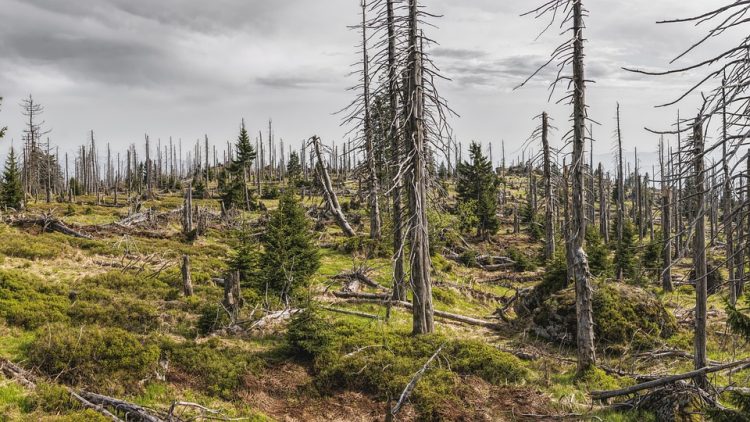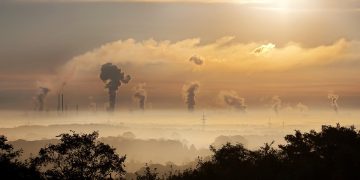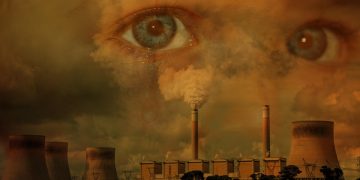The Devastating Link Between Deforestation and Climate Change
Deforestation is a critical issue that is closely linked to climate change. It refers to the clearing of forests or trees to make way for agriculture, urban development, logging, or other purposes. The consequences of deforestation are far-reaching and have a significant impact on the environment, wildlife, and ultimately, the planet as a whole.
Why is Deforestation Happening?
There are several reasons behind deforestation, with the main ones being agriculture, logging, and urbanization. As the global population continues to grow, the demand for food, timber, and land for housing and infrastructure also increases. This leads to the clearing of forests to meet these demands.
Another major driver of deforestation is illegal logging, which not only contributes to forest loss but also disrupts ecosystems and threatens biodiversity. Additionally, deforestation is often driven by economic factors, as countries seek to boost their economies through the exploitation of natural resources.
The Impact of Deforestation on Climate Change
Deforestation plays a significant role in climate change, as trees and forests play a crucial role in regulating the Earth’s climate. Trees absorb carbon dioxide from the atmosphere during photosynthesis, helping to reduce the greenhouse effect and mitigate global warming.
When trees are cut down or burned, the carbon stored in them is released back into the atmosphere as carbon dioxide, a potent greenhouse gas. This contributes to the increase in greenhouse gas emissions and exacerbates global warming. In fact, deforestation is responsible for around 15% of global greenhouse gas emissions, making it a major driver of climate change.
The Consequences of Deforestation
The consequences of deforestation are severe and wide-ranging. Apart from its impact on climate change, deforestation also leads to loss of biodiversity, soil erosion, disruption of ecosystems, and increased flooding and droughts. Deforestation destroys habitats for countless species of plants and animals, leading to a loss of biodiversity and the extinction of many species.
In addition, deforestation contributes to soil erosion, as trees play a crucial role in holding soil in place and preventing erosion. When forests are cleared, the soil becomes more vulnerable to erosion, leading to the loss of fertile land and decreased agricultural productivity. Deforestation also disrupts ecosystems and can lead to the collapse of entire ecosystems, with cascading effects on the environment.
What Can Be Done to Address Deforestation?
Addressing deforestation requires a multi-faceted approach that involves government policies, sustainable land management practices, and consumer behavior changes. Governments can play a crucial role in protecting forests by implementing laws and regulations that restrict deforestation and promote sustainable land use.
Landowners and businesses can also take steps to reduce deforestation by adopting sustainable land management practices, such as agroforestry and reforestation. Consumers can make a difference by choosing products that are sourced from sustainable, deforestation-free supply chains and supporting companies that are committed to reducing their impact on the environment.
The Urgency of Taking Action
With the devastating link between deforestation and climate change becoming increasingly clear, there is an urgent need to take action to protect our forests and the planet. By addressing deforestation and promoting sustainable land use practices, we can help mitigate the impacts of climate change and protect the environment for future generations.
It is crucial that governments, businesses, and individuals work together to address deforestation and promote sustainable land management practices. By taking action now, we can make a difference and ensure a more sustainable future for our planet.
Conclusion
Deforestation is a critical issue that is closely linked to climate change, with far-reaching consequences for the environment and the planet as a whole. By understanding the devastating link between deforestation and climate change, we can take action to protect our forests and mitigate the impacts of global warming.
Addressing deforestation requires a multi-faceted approach that involves government policies, sustainable land management practices, and consumer behavior changes. By working together to protect our forests and promote sustainable land use practices, we can make a difference and ensure a more sustainable future for our planet.
It is imperative that we take action now to address deforestation and protect our planet for future generations. Together, we can make a difference and ensure a healthier, more sustainable future for all.





